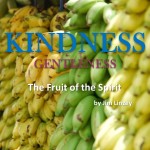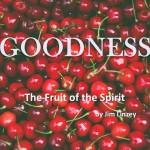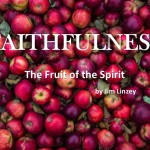The Fruit of the Spirit
 The gifts come in demonstration. The fruit comes in holiness. The gifts are impermanent. The fruit is permanent. The fruit is concerned with being, while gifts are concerned with doing. The gifts are operative through us and fruit is operative in us. Both are very important to the work of God. The purpose of both is conformity to the image of Christ. However, God will not be impressed with those who have allowed wonderful works to be done through them when they have not allowed God to work in them.
The gifts come in demonstration. The fruit comes in holiness. The gifts are impermanent. The fruit is permanent. The fruit is concerned with being, while gifts are concerned with doing. The gifts are operative through us and fruit is operative in us. Both are very important to the work of God. The purpose of both is conformity to the image of Christ. However, God will not be impressed with those who have allowed wonderful works to be done through them when they have not allowed God to work in them.
The fruit is the result of a new spiritual life from above; it does not come from self-imposed discipline.
 The nine gifts and the nine fruit are meant to balance each other and are intimately connected. They are connected by I Cor. 13—the love chapter. None of them are worthwhile without the love of God first.
The nine gifts and the nine fruit are meant to balance each other and are intimately connected. They are connected by I Cor. 13—the love chapter. None of them are worthwhile without the love of God first.
 Men are not born with the fruit of the Spirit. Fruit is a product of development. The fruit are not divided up between believers as the gifts are. The gifts are given to various believers, one or two to each believer as the need arises. However, love is not given to one person and peace to another. Fruit has to do with character—what a person is. Gifts have to do with ministry—what a person does. Fruit is expressed through exhibitions of love; gifts in exhibition of power. Fruit exhibits Christ-like qualities of character and conduct.
Men are not born with the fruit of the Spirit. Fruit is a product of development. The fruit are not divided up between believers as the gifts are. The gifts are given to various believers, one or two to each believer as the need arises. However, love is not given to one person and peace to another. Fruit has to do with character—what a person is. Gifts have to do with ministry—what a person does. Fruit is expressed through exhibitions of love; gifts in exhibition of power. Fruit exhibits Christ-like qualities of character and conduct.
Gifts result in dynamic service for Christ, but do not depend on the inner character of the believer. The sum of the fruit of the Spirit may be called Christ-likeness, for it is produced exclusively by the Spirit of Christ within the believer. Fruit is produced by the Christ-life within. Growing in the Lord and disciplining the self to allow the Spirit to produce fruit prepares for the fruit itself. Fruit comes as the believer separates himself from worldliness, yields himself to God, and seeks to know what God teaches in His Word. Fruit is the result of the believer yielding to the ministry of the Holy Spirit. Let the Holy Spirit rule, and the fruit of the Spirit will develop. We are commanded to bear fruit.
Category: Spirit, Winter 2018


